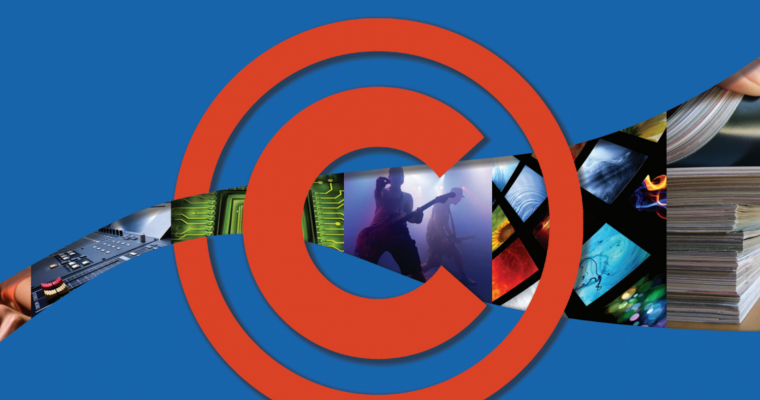RIAA wants US providers to filter out pirated content

The struggle of copyright holders with the "pirates" does not stop for a minute. The American Recording Industry Association (RIAA), along with other rights holders, is going to force US regulators to review the “outdated” procedure for removing unlicensed content from websites that have posted such content. Right holders do not want to delete anything, they plan to ensure that US providers block such content on their own, preventing users from accessing it.
According to the RIAA and 14 other groups that are partners of the Association, the law on copyright protection in the digital age (Digital Millennium Copyright Act, DMCA), adopted 19 years ago, is not working now. According to representatives of the “copyright lobby”, the laws and rules governing the relationship between right holders and “pirates” need to be revised. With regard to the removal of content on demand, the RIAA is unhappy with this procedure - it takes too much time and effort. According to the Association, it is easier to block access to unlicensed content at the provider level.
Representatives of this group consider it not a fair deal to provide Internet providers with legal immunity in the absence of responsibility for user access to “pirated” content in exchange for the content removal procedure upon request. Among other measures, copyright holders propose to establish a clear time frame during which the owner of the site where the illegal content is located must delete this information. At the expiration of this period, the provider / providers should respond. Another option is to maintain a rule according to which providers must automatically block certain content after a request is submitted by copyright holders. All this will be done with the help of a special system of blocking information (individual pages of sites, the sites themselves, etc.).
')
The RIAA believes that even a short period during which a film, music or software is placed without permission on any site can cause huge losses to the rights holders. To prevent this from happening, the Association offers filtering content.
However, this is not the first time that right holders require content filtering to be introduced. For example, in 2015, the Authors Guild of the USA, one of the largest organizations for the protection of the interests of writers, demanded that Congress force Internet providers to monitor and filter pirated content. Then they suggested including e-books in the list of such content. Ten years ago, content filtering required the introduction of the Motion Picture Association of America (MPAA), an analogue of the RIAA, only in cinema.
The House Judiciary Committee will soon have to evaluate US laws to protect copyright. By the way, new claims of rightholders appeared a few weeks after, as a rule, the “Six Warnings” were declared insolvent. As it turned out, warnings simply do not work - few people pay attention to them, and providers are not too eager to track the actions of their users.
Now the group of lobbying the interests of the authors include organizations such as the American Federation of Musicians, the American Society of Composers, Authors and Publishers, Broadcast Music, the Content Creators Coalition, Global Music Rights, the Living Legends Foundation, the Music Managers Forum-United States, the Nashville Songwriters Association International Music Academy, National Music Publishers' Association, National Academy of Television and Radio Artists, SESAC Holdings, and SoundExchange.
Perhaps the requirements of rights holders are also related to the fact that "pirated" content appears on the network really quickly. And here we are talking not only about music, but also about movies. For example, now all the films that have won an Oscar this week are available online. The ceremony was held with chic, as always, she riveted the attention of hundreds of millions of people. And at the same time in search services, the popularity of search queries on films presented at the awards ceremony has increased.

Now these films are available in very good quality, since the pre-show films of these films flowed into the network. As always, it is not at once clear who is to blame for this - either those to whom these films were sent to watch, or the staff of Hollywood studios who made these films, or someone else. Interestingly, “Outcast-one. Star Wars: Stories, the only Oscar nominee who has flown into the network, is not available as a pre-show copy, but as an HDTS copy.

Over the past ten years, the leakage of pre-show copies of films has become, one might say, a tradition. This usually happens in December. For example, last year almost all new films appeared in the network in December, in very good quality. Now the situation is somewhat different. So, in December 2016 there was nothing in the network. In early January, the first films began to appear, the remaining copies were added at the end of January 2017 and later. Most of the "pirate" appeared on the Internet a few days before the awards ceremony.
And what about Russia?
Unlike the United States, Russian copyright holders require the blocking of pirated sites not only from Internet service providers, but also from search services. A draft law is currently under consideration by the State Duma, obliging search services like Google and Yandex to completely remove pirated sites and their “mirrors” from search results. Now, individual pages or sections of sites are removed from the issue if unlicensed content is detected there. The new bill states that pirate websites are blocked not only by a court decision, but also on the basis of a court order.
If the bill becomes law, then the sites that usually do not respond to requests from rights holders will be the first to suffer. The “author's lobby” in the Russian Federation, like its American counterpart, also considers such requests to be an extremely ineffective measure to combat piracy. The goal of the authors of the new bill is “to stop the illegal distribution and use of audiovisual works on the Internet”.
Earlier, Russian owners have tried to negotiate with the representatives of the search services self-regulation mechanisms that would solve the problem of piracy without the need to change the law. But search engines have made it clear that they are unlikely to do something without legal grounds. “Current legislation already gives rights holders ample opportunities to block copyright objects. But we never interfere in search results, ”said a representative of Yandex Asya Melkumova.
Source: https://habr.com/ru/post/356118/
All Articles